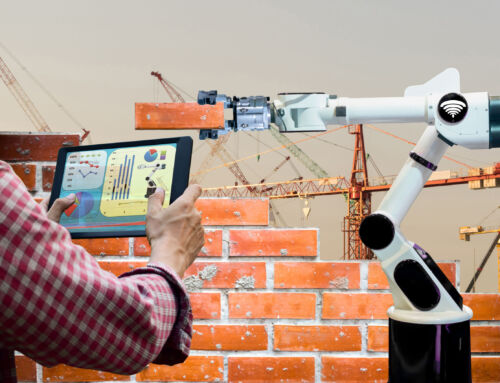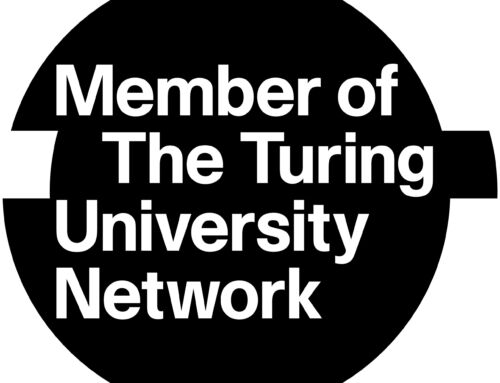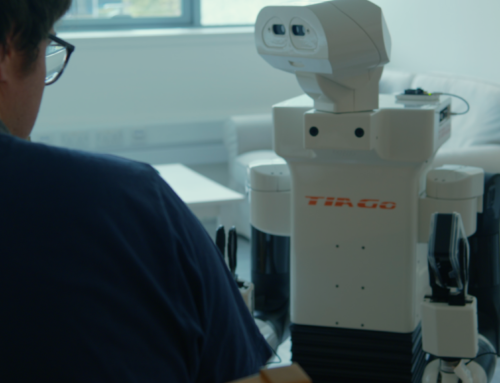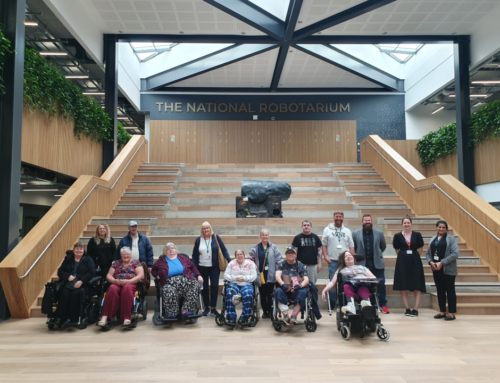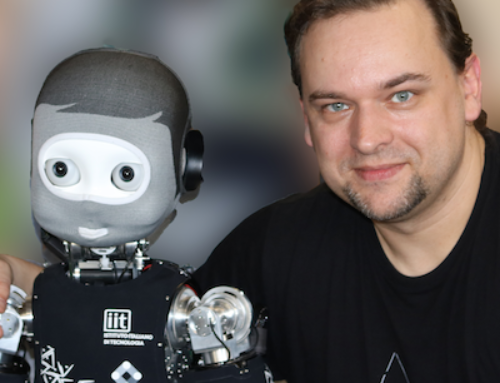A team of robotics researchers from the National Robotarium, supported by Heriot-Watt University and the University of Edinburgh, are through to the semi-finals of Amazon’s Alexa Prize SimBot Challenge – an artificial intelligence competition focused on conversational robots.
Team EMMA, the only non-US team to be shortlisted for the competition, have been developing an embodied conversational agent since the challenge launched in October 2021. Since July 2022, they have been competing in the ‘live interactions’ development phase, during which the agent has been interacting with real Amazon Alexa customers who provided real-time ratings, reviews and feedback.
The next stage of the challenge involves using Amazon’s new Echo Show device, which has a screen to show the robot moving around, as well as speakers and a microphone. The SimBot Challenge involves using various kinds of data, including user feedback, to train a virtual robot to follow human commands.
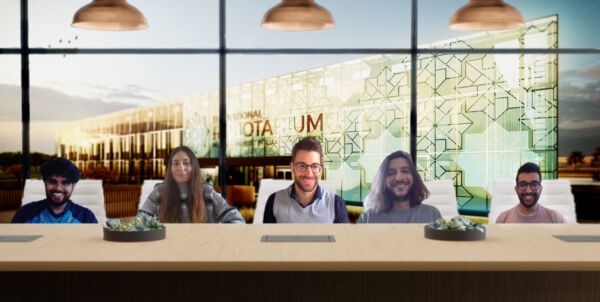
Dr Alessandro Suglia (pictured above, centre), a tenure-track research fellow in Robotics and Autonomous Systems, leads the team and said:
“It’s amazing to reach the semi-finals of such a prestigious and important competition in the artificial intelligence field.
“It was fun – but also challenging – to work through Amazon’s list of missions for our robot. Using spoken instructions only, we had to get it to do things in its virtual world from pouring milk to fixing a fuse box. We are basically developing the AI that underpins these commands and how the robot moves around its environment to do these things for the user.”
The semi-finals phase of the Alexa Prize SimBot Challenge runs from 2nd February to 22nd March 2023. If Team EMMA reach the finals, they will be competing with three other teams for the first prize of $500,000. The team have already received a grant of $250,000 from Amazon to develop their AI prototype.
The other Team EMMA members are Amit Parekh, a second-year PhD student focused on multi-agent negotiation, and three students from the EPSRC Centre for Doctoral Training in Robotics and Autonomous Systems. These are Hemanthage Supun Bhathiya, a second year PhD student working on multimodal conversational AI; Maria-Vasiliki (Malvina) Nikandrou, a second year PhD student working on continual learning techniques for vision and language models, and Georgios Michail Pantazopoulos, a first year PhD student developing novel techniques to improve the generalisation skills of multimodal machine learning models.


